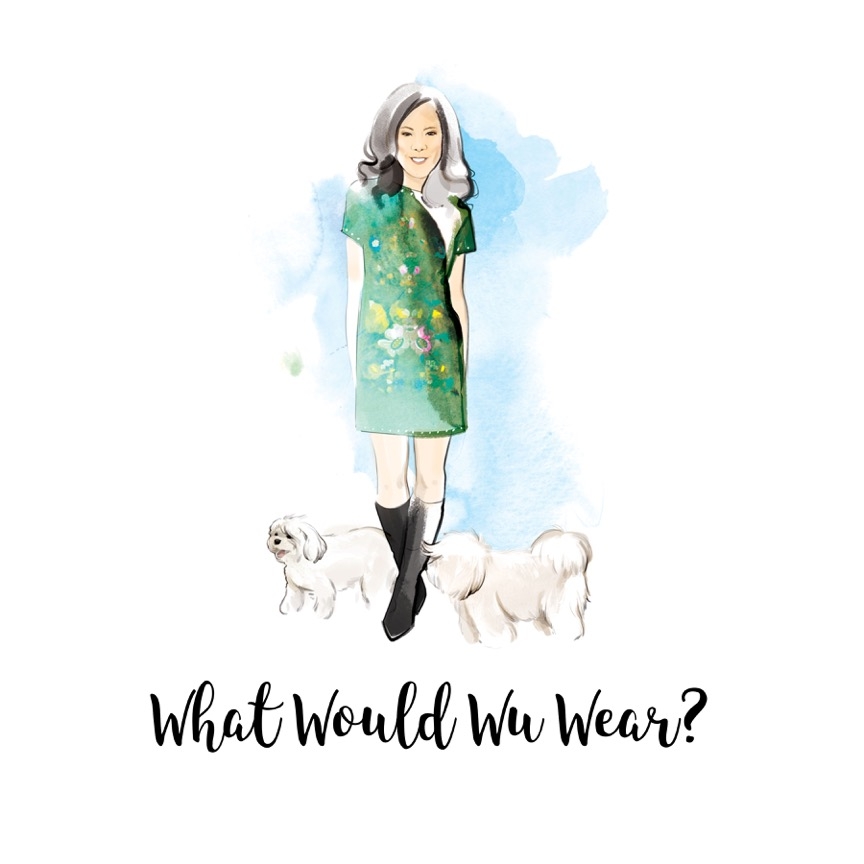What’s Their Story?

You know those people who are always up, happy and able to see the bright side of everything? Usually, they’re the same people who pay close attention in life, growing wiser with each experience. I’m lucky enough to have one of them as a close friend. Let’s call her Ann.
Sometimes when Ann and I go out to dinner, we’ll play a little game called, “What’s their story?” We’ll spot someone interesting across the room and take turns describing who we think that person is, what they do for a living, who they love, what kind of family they came from, and what’s their dark secret? (In this game, everyone has a dark secret.)
The point of the game is that, eventually, their character profile becomes so ludicrous that everyone cracks up. I’m sure some objects of our glee have wondered why we kept looking at them and laughing. We should have sent them drinks.
It was all fun and games until, during a shopping trip, Ann realized that “What’s their story?” had another use. A sales lady had treated her dismissively and was unhelpful, leaving Ann a little miffed and on her own to navigate the store. As she headed into the dressing room, Ann overheard two employees talking about “Ruth,” whose Mom recently went on life support.
Ann finished up in the dressing room and headed out to pay for her purchases, where the same indifferent sales lady began ringing up her purchase. And, as you probably guessed, her name tag said “Ruth.”
Ann immediately understood why she hadn’t received the best service and was relieved she hadn’t acted on her urge to report the woman. She smiled at Ruth and thanked her for her help. Even though she hadn’t been helpful, Ann knew that Ruth could undoubtedly use a “thank you” for something.
From that point on, Ann has asked “What’s their story?” before judging someone’s behavior.
Using this approach never occurred to me until Ann and I were stuck in traffic. It was hot, horns were blaring, and apparently everyone had agreed, en masse, not to use their turn signals. I began to silently wish bad things on all of them.
At one point, another driver swerved in front of me, almost causing a wreck. I laid on my horn, loudly proclaiming him the rudest, most self-centered jerk on Earth, though in less family-friendly terms. I looked over at Ann and said, “I’m sorry, I shouldn’t get so angry but – these people!”
Almost as if she hadn’t heard me, she said, “I wonder what his story is,” and she told me about Ruth.
“Depression is anger and anger is sadness,” she said. “When people act aggressively it might be that they’re carrying a burden that’s too heavy. What if he just lost his job?”
Ann is infinitely wise. Now, whenever someone is confrontational, I think, “What’s their story?” Maybe they just lost someone they love. Were they going through a divorce? Are they or their pet sick?
We never know what is going on in other’s lives, so the best response is to treat anyone we meet, even if they’re rude to us, especially if they’re rude to us, as if they’re trying to navigate a difficult life event. Be patient and kind. Someday it might be us who needs a stranger’s tolerance and compassion.
Asking “What’s their story?” isn’t just about empathy towards others. It’s also a good way to protect yourself from someone’s hateful rage. When you pause to consider what’s at the root of their actions, it switches you from reactive fight mode into the observant state of mindfulness minimizing possible damage to your health from all that anger and adrenaline.
I’ve even turned the question inward, asking “What’s my story?” when I find myself getting irritated by a situation. It’s an effective magnifying glass, showing me what’s at the bottom of my reaction. That simple detachment helps me regulate my emotions, calm down, and respond more productively.
So, the next time you want to throttle someone for how they’re treating you, remember there may be a good reason for their attitude. And even if there’s not, you’ll remain calm and untouched by their behavior.
That’s the power of one small question. “What’s Their Story?”
